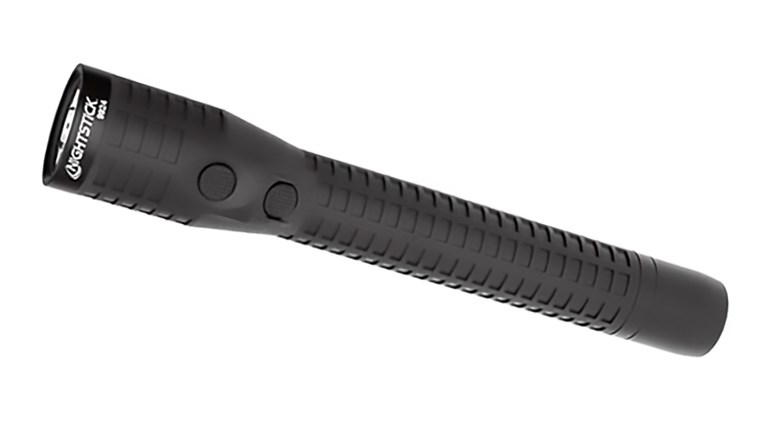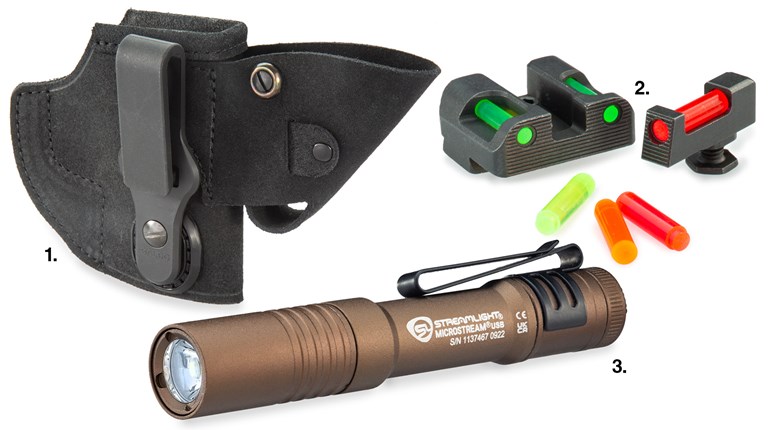
It’s a happy coincidence this week: We continue our light/short MSR/AR build, but with some gear items that make great gifts too.
Timney “Straight” AR/MSR Trigger
Timney won’t be a new name to those who are exacting about their trigger hardware. We’ve run several ourselves in other platforms, and always with uniformly superb results. Got a Remington 700? No issues there. A Winchester Model 70—done. Weatherby? Even Ruger 10/22? No doubt you get our drift: If it’s rifle/shotgun length and goes “bang,” Timney has a plan—indeed, likely has had, for 70 years, and for at least 20 different manufacturers by our count.
As far as it landing in our build, however, we took a slightly different tack. We haven’t built with a Timney in an MSR yet (though we’ve shot several), and figured it was high time. What has been put at our disposal for the purpose is, as usual, excellent.
Timney calls our exemplar their “Competition,” and we see why. Courtesy of Brownell’s, ours has a 4-pound press, though they offer both lighter and heavier (3 and 4.5). The more important feature in our opinion is the all-but-total absence of so-called “take-up.” Some triggers have this deliberately, and we understand why—such pre-travel provides prep for actual release of the sear/firing pin, and as such can improve the precision of some shots. When deliberate, it’s a two-stage trigger—a softish front end to a very apparent “wall,” followed by the extremely precise and often exceptionally light actual break of the shot.
In poor quality triggers, such prep/pre-travel/first stage lurches over into ol’ fashioned “creep”—the gritty, unpredictable pre-movement that makes such mechanisms all but impossible to run with precision. Ah, yuck?
Suffice it to say that our Timney does neither, good version or bad. Pressure builds to the appropriate level with no movement of the trigger itself, and then breaks the shot—the “glass-rod” break.
Another goody we also prefer is Timney’s new straight trigger. There’s nothing wrong, per se, with curved triggers, mind you, but here’s why we prefer straight: When we run an MSR at short and intermediate ranges, delicate finger position on the trigger face may be a luxury. The speed of the required shot or less-then-perfect body position can compound these variables, and we aren’t crazy about having the trigger feed back—at juuuuuuuust the crucial instant before the break—that “there’s something’s not quite right down here!” if we’re compelled to apply ignition pressure higher or lower on the lever. A straight trigger surely reduces this, and perhaps eliminates it altogether.
As if that weren’t enough, straight triggers also reduce the impact of finger position on the trigger if you’re shooting in gloves.

‘Nuff said. ($225)
AXTS
First we whine a little, unlucky as we are in the thumbs department. On opposability—all-important in terms of overall functionality, we concede—we’re good. But when it comes to running safety mechanisms on all kinds of firearms, we often find ourselves coming up, er, “short,” both literally and figuratively. The disability seems especially pronounced when we’re forced to work in southpaw fashion, i.e., the other side of the rifle or pistol. We fumble; there’s just no way to put a better face on it. Grrrrrrr.
Now AXTS Weapon Systems™ says they’ve got a fix for our particular disadvantage, as well as several others, and we’d have to say that it looks like a very good one. Brownell’s fixed us up with one of AXTS’s Talon “2 in 1” designs, which puts a lever on both sides, and has a convertibility option for a 45- or 90-degree throw.
As if that wasn’t enough, it’s also available in a two- or four-lever version. This allows you to fit different levers to either side of your rifle—long, medium, medium tapered, and short—and swap ‘em around until you hit on the combo that suits for comfort and efficacy. Don’t just default this: You may like an unobvious combination, and swapping is a breeze. (Follow the off/on directions precisely, however, or you’ll launch the spring-loaded detent, and likely a volley of mumbled cursing. That’s a nuisance, though AXTS considerately sends along a spare.)
One hint is in order: In the instructions, you won’t find an explicit description of how to select for 45- or 90-degree throw. This is probably because it’s so darn easy to fix if the 50-50 probability of getting it right doesn’t happen to go your way. But a little examination makes clear “what’s what” if you know your way around MSR selectors. We’ll spell it out and maybe save you a step. When you look at the selector “cylinder,” you’ll see the machined channels in which the detent rides on what becomes the right-side end of the part, and may even note they are different lengths—that is, they span different arcs in that circumference. Eureka!
The short channel corresponds to 45-degree throw, and the longer one to 90. If you want 45, install the cylinder with the shorter channel down and to the right (as usual), and you’ll get what you’re after the very first time. Reverse it if you prefer the standard 90-degrees of travel from “safe” to “fire.”
In a word, “fabulous.” Hope somebody gives you one ($56-$79).

By chance in one sense, our second short/light MSR part is from AXTS as well. It’s quite likely the one for which they’re better known, too—the Raptor Ambidextrous Charging handle.
What isn’t chance is that the Raptor is a nearly “gotta have” assembly in our book. Whether you’re trying to maneuver around the bell of an optic, or need/want to be able to charge from either side of the rifle, an AXTS handle is hard to beat. It’s a 7075, T6 delight that you may find yourself moving from rifle to rifle—that’s what we do as we save up for one native to each MSR, and even our PCC. It makes charging/clearing that much more straightforward and positive, though we acknowledge it adds a little weight (~1 ounce).
But the fact that it runs in utterly identical fashion from both sides of the rifle trumps all. Tough, handy and beautifully made, it is bound to please—given or gotten. ($80 [for 5.56] to $102 [for 7.62 and a special version for suppressed rifles.] It’s also available in FDE, grey and burnt bronze.)Part 1 Part 2 Part 3 Part 5 Part 6 Part 7 Part 8 Part 9


































